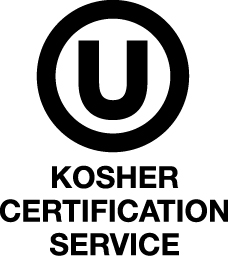What it Means to be Jewish and ‘Keep Kosher’
Zev Palatnik

I’m sure you’ve heard the word ‘kosher’ and know it has something to do with Judaism and food. But do you know what it means and how it works day to day? I do, because I ‘keep kosher’ and it’s been an important part of my life and my faith.
There are many Jews who only eat kosher food. Those who are Orthodox, as I am, follow the extensive dietary guidelines set out in the Bible such as: no mixing of meat and milk (so no cheeseburgers); only specific hooved animals may be eaten (no pigs); no shellfish or other non-fish seafood; and generally no birds.
Without getting too detailed, I’ll tell you a little about what it’s like to keep kosher, but first I’ll note here that these and other rules I describe are generally understood and practiced by Orthodox Jews. Not everyone who says they keep kosher follows the same rules. Some people are stricter, some less so and some understand the rules differently. But by and large, each person decides how they practice this and other aspects of Judaism.
The rules of keeping kosher can be complicated, even for those who have been doing so their whole lives. There are a number of organizations with experts who give certifications to products that meet kosher standards. The parent organization where I work, the Orthodox Union, is an authority on kosher and certifies thousands of products. You might notice the symbol on items ranging from M&Ms to frozen pizza.

When food shopping, we seek out packaged food with such labels. In America, many products at a typical grocery store are already kosher. And, without getting too technical, there are dozens of kosher certifications with varying degrees of acceptability within the kosher community.
The main exception is meat: to be kosher, meat must be prepared in very specific ways — from slaughter to packaging. That’s why kosher meat is more expensive and not as widely available.
One of the biggest differences in daily life for someone who keeps kosher is dining out. To eat at a restaurant, it needs to have a kosher certification. The vast majority of restaurants in the United States aren’t kosher certified, in part because a kosher certificate adds to the operational cost. This makes going to restaurants very impractical and a rare occurrence: In Washington, D.C., where I work, there is one kosher restaurant. And as of last year, D.C. now has a kosher food truck that travels around the downtown area. A few miles away in Maryland, which has a more concentrated Jewish population, there are a handful of kosher restaurants.
If the need arises to attend a business lunch or go to a non-kosher restaurant, many Jews who keep kosher plan ahead and eat prepared food beforehand and then order a simple salad or other non-cooked items. It’s much easier to eat out in places such as the New York City area. As home to nine percent of the country’s Jews, there are countless kosher restaurants and delis in various parts of town.
Keeping kosher also has a significant effect on travel. As a kid, during family vacations, I recall times when a connecting flight was canceled and the airline offered food vouchers. While other people used them to eat at a restaurant, my family went to the store and bought a lot of packaged cookies and bananas. Keeping kosher when traveling in a foreign country that doesn’t have a significant Jewish population (as is the case in most countries), can be quite difficult.
The situations I’ve mentioned are just a few examples of what it means to keep kosher. In reality, keeping kosher affects just about all realms of life: it can influence the jobs people take, where one goes on vacation and even where to live.
Ultimately, keeping kosher isn’t just about food. Rather, it’s a daily reminder of our faith.
To learn more about kosher, visit the Orthodox Union’s article “What is Kosher?”
Zev Palatnik is a legislative fellow for the Washington, D.C.-based Orthodox Union Advocacy Center, the non-partisan public policy arm of the Orthodox Union — the nation’s largest Orthodox Jewish umbrella organization.
![]()